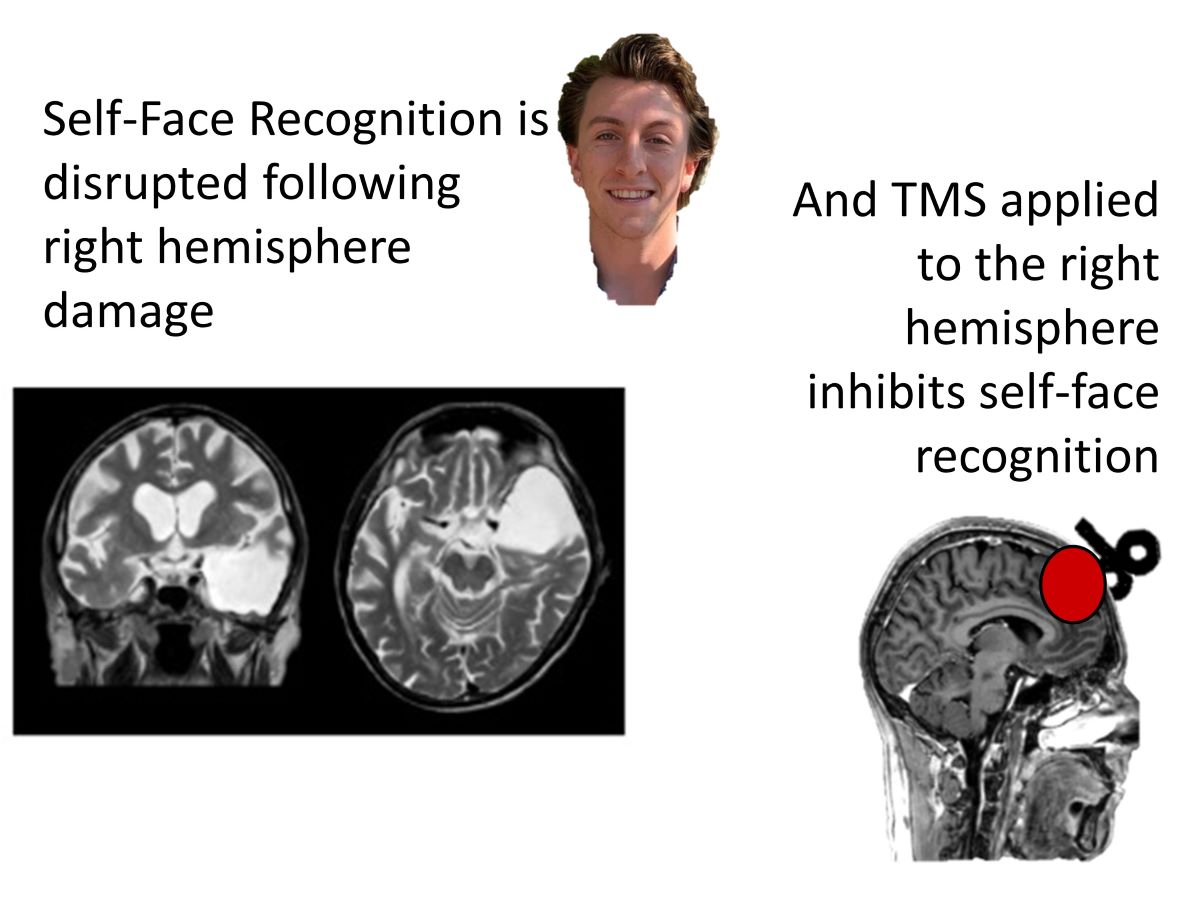While the desire to uncover the neural correlates of consciousness has taken numerous directions, self-face recognition has been a constant in attempts to isolate aspects of self-awareness. The neuroimaging revolution of the 1990’s bought about systematic attempts to isolate the underlying neural basis self-face recognition. These studies, including some of the first fMRI (functional Magnetic Resonance Imaging) studies, revealed a right hemisphere bias for self-face recognition in a diverse set of regions including the insula, the Dorsal Frontal Lobe, the Temporal Parietal Junction and Medial Temporal Cortex. Confirmation of these data (which are correlational) was provided by TMS (Transcranial Magnetic Stimulation) and patients in which direct inhibition or ablation of right hemisphere regions leads to a disruption or absence of self-face recognition. These data are consistent with a number of theories including a right hemisphere dominance for self-awareness and/or a right hemisphere specialization for identifying significant social relationships including to oneself.

